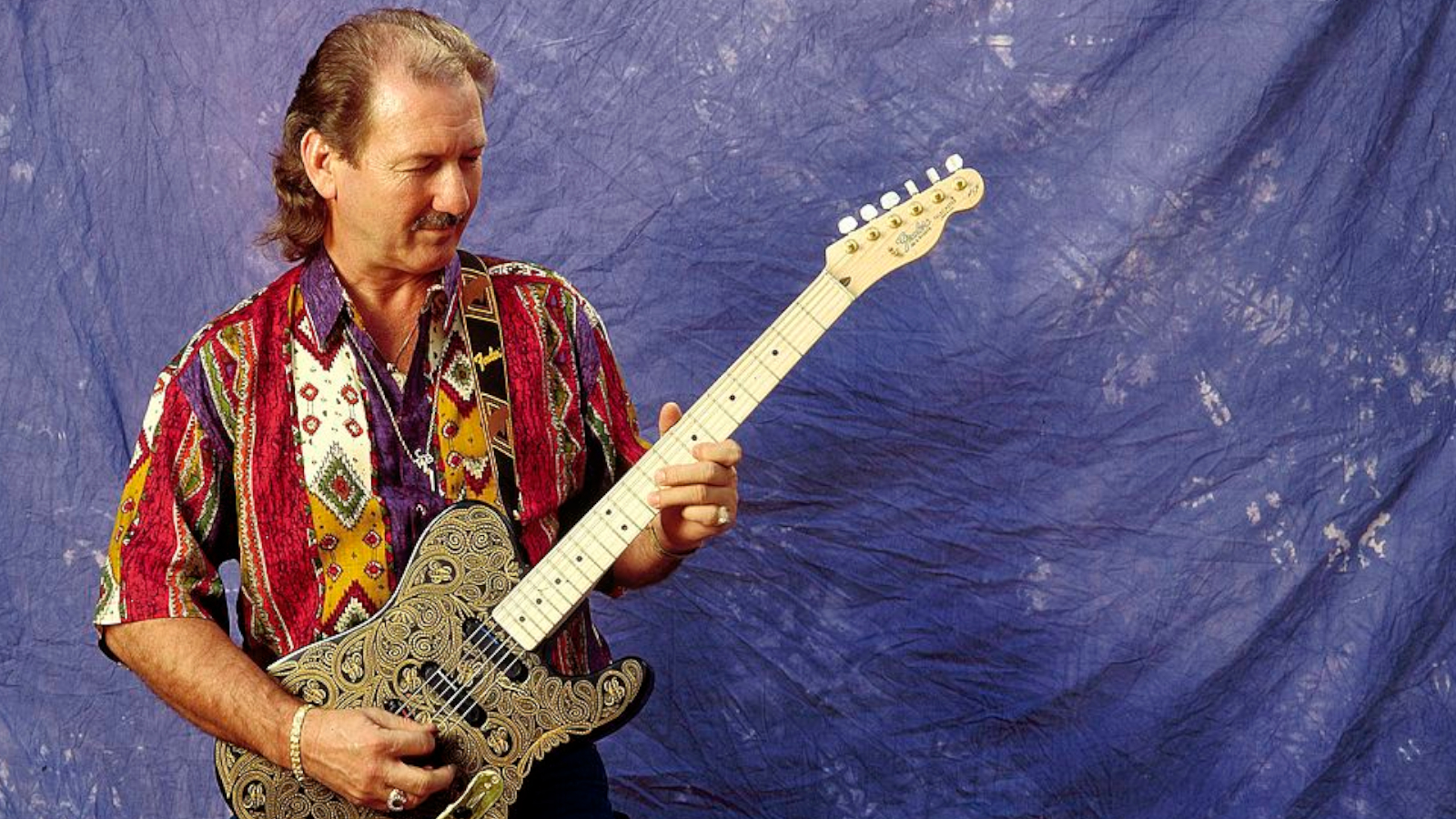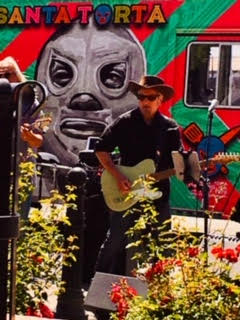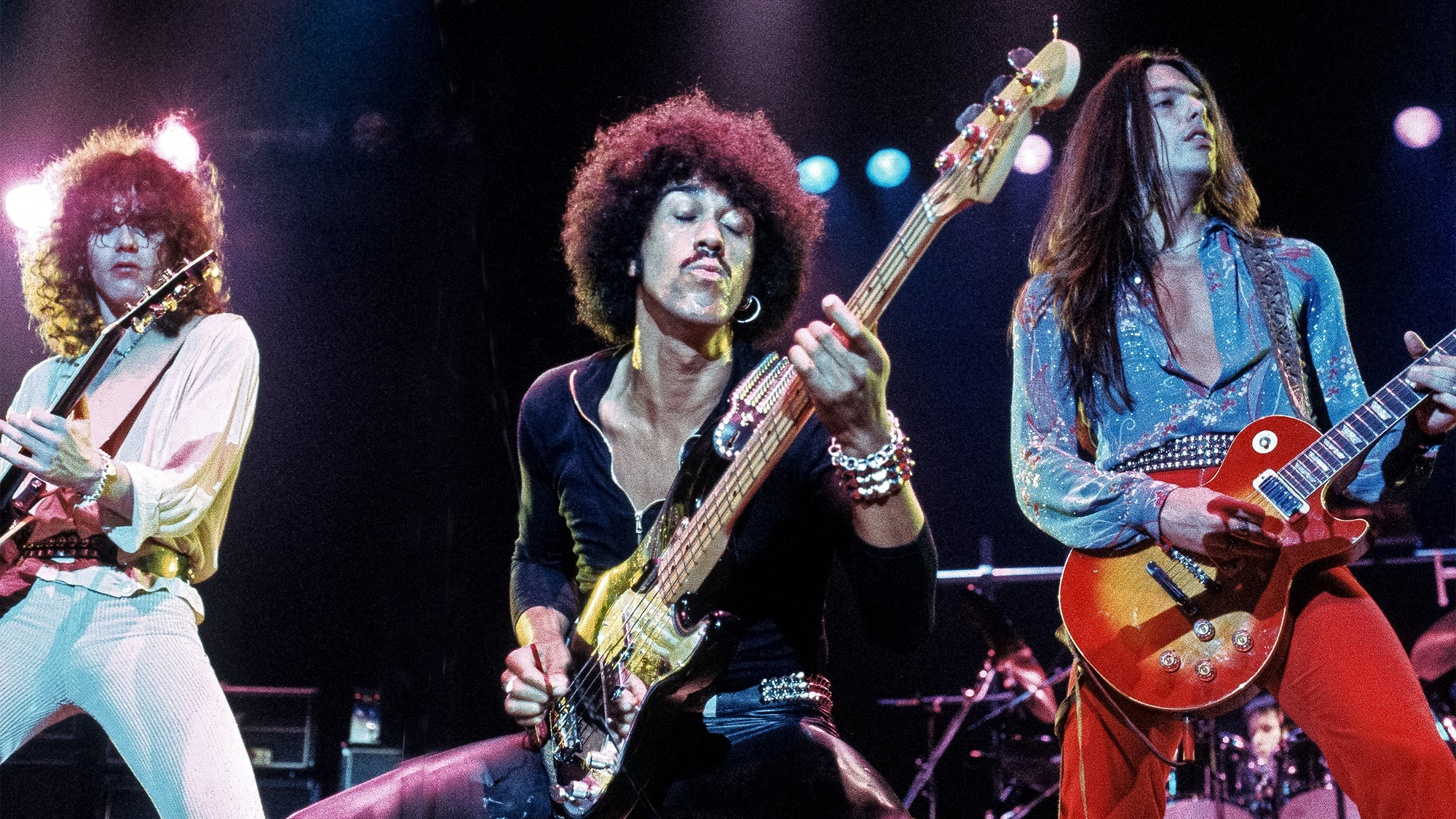Living Legend James Burton Talks Playing With Elvis, Emmylou Harris, Glen Campbell and Tom Jones
An inspiration to Jimmy Page and Jeff Beck, the rock ‘n’ roll veteran has seen it all.

All the latest guitar news, interviews, lessons, reviews, deals and more, direct to your inbox!
You are now subscribed
Your newsletter sign-up was successful
If anyone deserves the title of “Hardest Working Guitarist in Show Business,” it’s James Burton, who celebrates his 83rd birthday this month.
Since the 1950s, Burton has worked with so many famous artists at pivotal times in their careers that his twangy double-stops and snappy runs are preserved for eternity in many of the most popular tunes from the latter half of the 20th century.
Here, the great man himself tells us about working with music legends such as Elvis Presley, Emmylou Harris, Glen Campbell and Tom Jones…

Your improvisational approach is quite apparent on the Elvis at Stax recordings from 1973. Did you already know a lot of the cover songs that Elvis pulled out for those sessions?
Actually, I didn’t know any of them. A lot of the songs we recorded for those sessions I heard for the first time there. But we had great musicians and a pretty good singer.
Elvis always worked real close with the musicians, and we would rehearse the songs a couple of times to see how it felt for him.
As far as the parts I played, they just kind of came to me. When you play by ear there’s a lot of things you hear, sometimes all at once, and being able to separate them is another trick.
All the latest guitar news, interviews, lessons, reviews, deals and more, direct to your inbox!
When you play by ear there’s a lot of things you hear, sometimes all at once
James Burton
You go back to the song and playing for the artist, and making it as perfect as you can.
The way Elvis liked to work was that he would listen to a record and sort of copy some of the things that caught his ear and he thought he could enjoy working with.
He had a certain way of singing other people’s songs, and he could even make them sound better sometimes.
It was enjoyable doing those sessions, and I think it was an important part of history for Elvis, and also a big deal for Stax at the time.
A couple of years later, you started working with Emmylou Harris. How did that come about?
The way that happened was a good friend of mine named Gram Parsons – who I met when I played on the Byrds’ record – called me one day and said he was working on getting an album project going so we could go in the studio and record.
Then Merle Haggard called me to ask if I knew this guy Gram Parsons, and if he was an okay country singer. And I said, “Yeah, I know him and he’s a fine singer.”
So anyway, a couple of weeks go by and I never heard back from Merle, but Gram called me to say that his project had come together with Warner Brothers, and he asked me to get some guys to record with.
We toured with her in England and it was like she became a big star overnight
James Burton
So we got [pianist] Glen Hardin and [bassist] Emory Gordy, and a bunch of other guys, and we went in the studio and recorded two albums with Gram, and that’s where I met Emmylou.
When Gram unfortunately passed away, his manager Ed Tigner took Emmylou and made the same deal with Warner. So we did an album with her, and she was a jewel to work with – just a great lady and a great singer.
It was really fun stuff. Good songs, good recordings, and great musicians. Everything clicked. We toured with her in England and it was like she became a big star overnight.
She got a standing ovation every night. They just loved her.
You worked with Glen Campbell, too.
Yes, I met him when he first came to California. I remember he was driving a ’61 Thunderbird at the time.
I was playing in a little club out in the valley in Van Nuys [California], with this blues singer, and Glen would come and sit in with us.
He asked me to play on his first album, Kentucky Means Paradise. It was a bluegrass album, and he wanted me to play slide Dobro, but actually I played a standard big-body acoustic guitar.
I met [Glen Campbell] when he first came to California. I remember he was driving a ’61 Thunderbird
James Burton
I just raised the strings up with a taller nut and played it like a steel guitar. I played on the whole album and it was just great.
I was working with Ricky Nelson at that time, and when we weren’t touring I would go out and play this club just to keep my chops up.
I also started giving Glen my sessions back then because Ricky didn’t want me to play on records with other artists.
How did you get involved in recording with Tom Jones?
Tom was a big fan of Elvis, and he would come and see us every night in Las Vegas.
One night, at a party after the show, Tom went over and asked Elvis, “Do you mind if I borrow your guitar player to play on some records for me?”
Elvis said, “There he is, go ask him yourself.”
Tom [Jones] went over and asked Elvis, “Do you mind if I borrow your guitar player?”
James Burton
In truth, he’d already asked me and I’d agreed, but I guess he wanted to make sure it was okay with Elvis.
Tom’s guitarist for many years was Big Jim Sullivan, and he once said to me, “I used to teach guitar in England and do you know who my students were?”
I told him I had no idea. He said, “Jimmy Page and Jeff Beck – and these guys wanted to play like you.”
I felt pretty honored by that. I mean I wish I could play like them.

Art Thompson is Senior Editor of Guitar Player magazine. He has authored stories with numerous guitar greats including B.B. King, Prince and Scotty Moore and interviewed gear innovators such as Paul Reed Smith, Randall Smith and Gary Kramer. He also wrote the first book on vintage effects pedals, Stompbox. Art's busy performance schedule with three stylistically diverse groups provides ample opportunity to test-drive new guitars, amps and effects, many of which are featured in the pages of GP.
